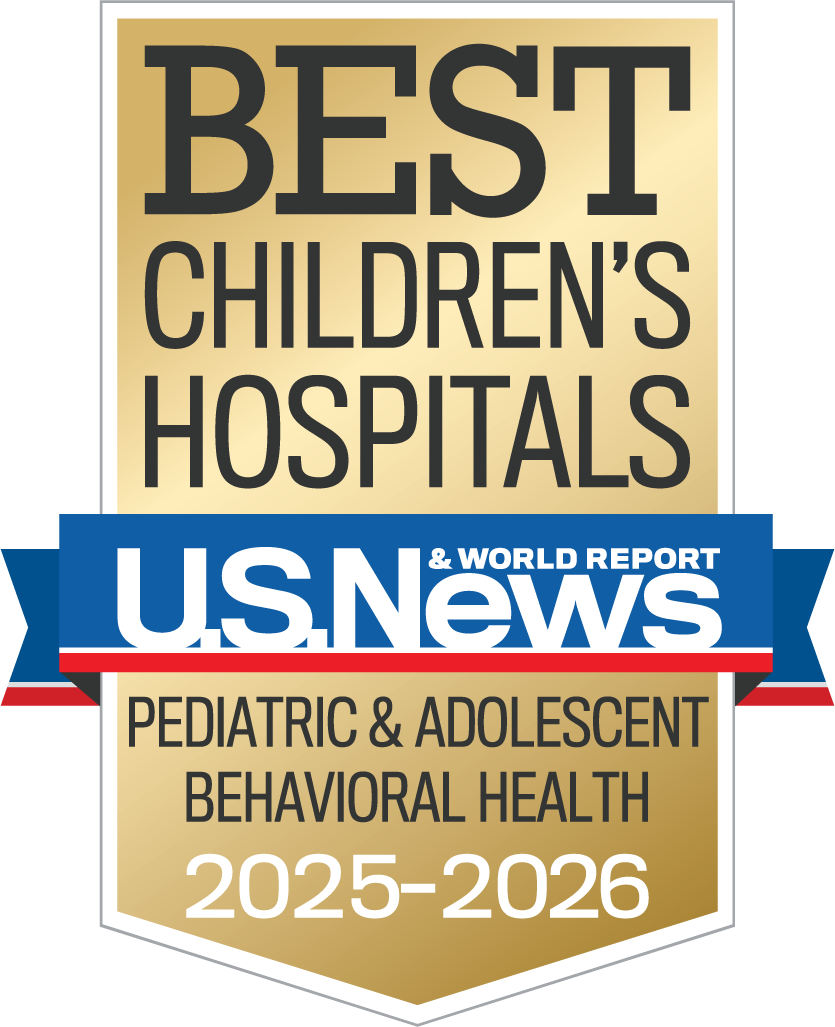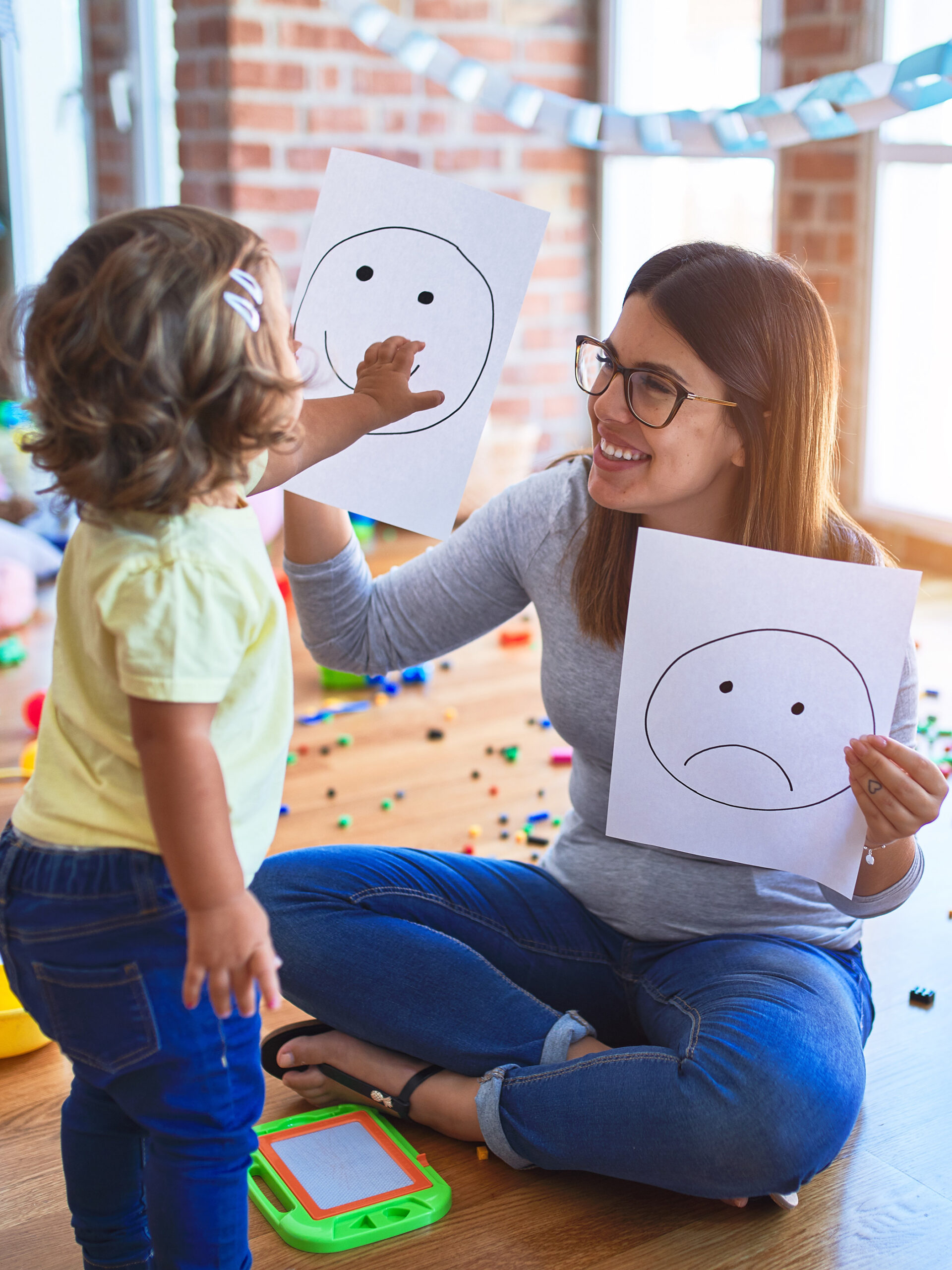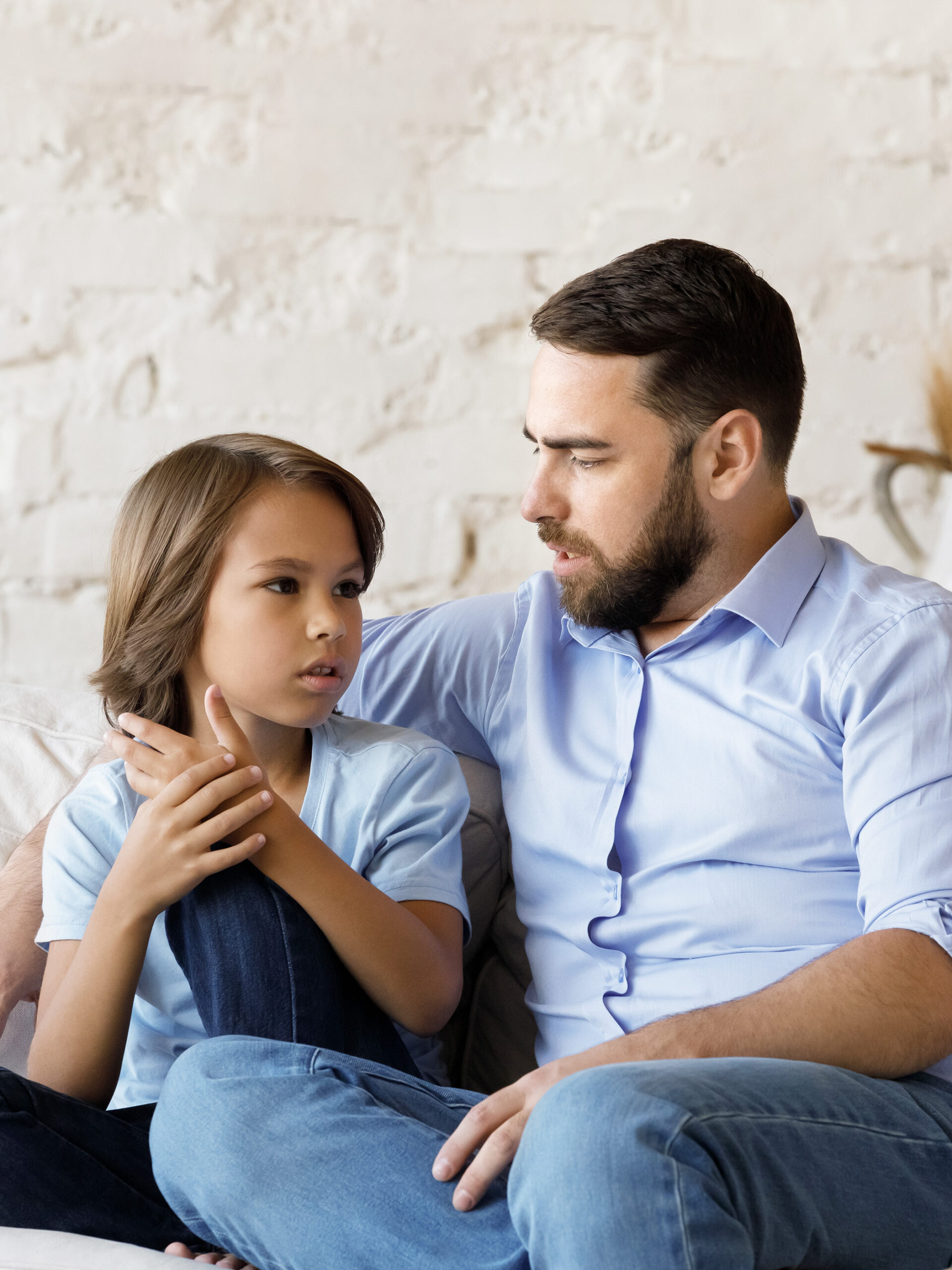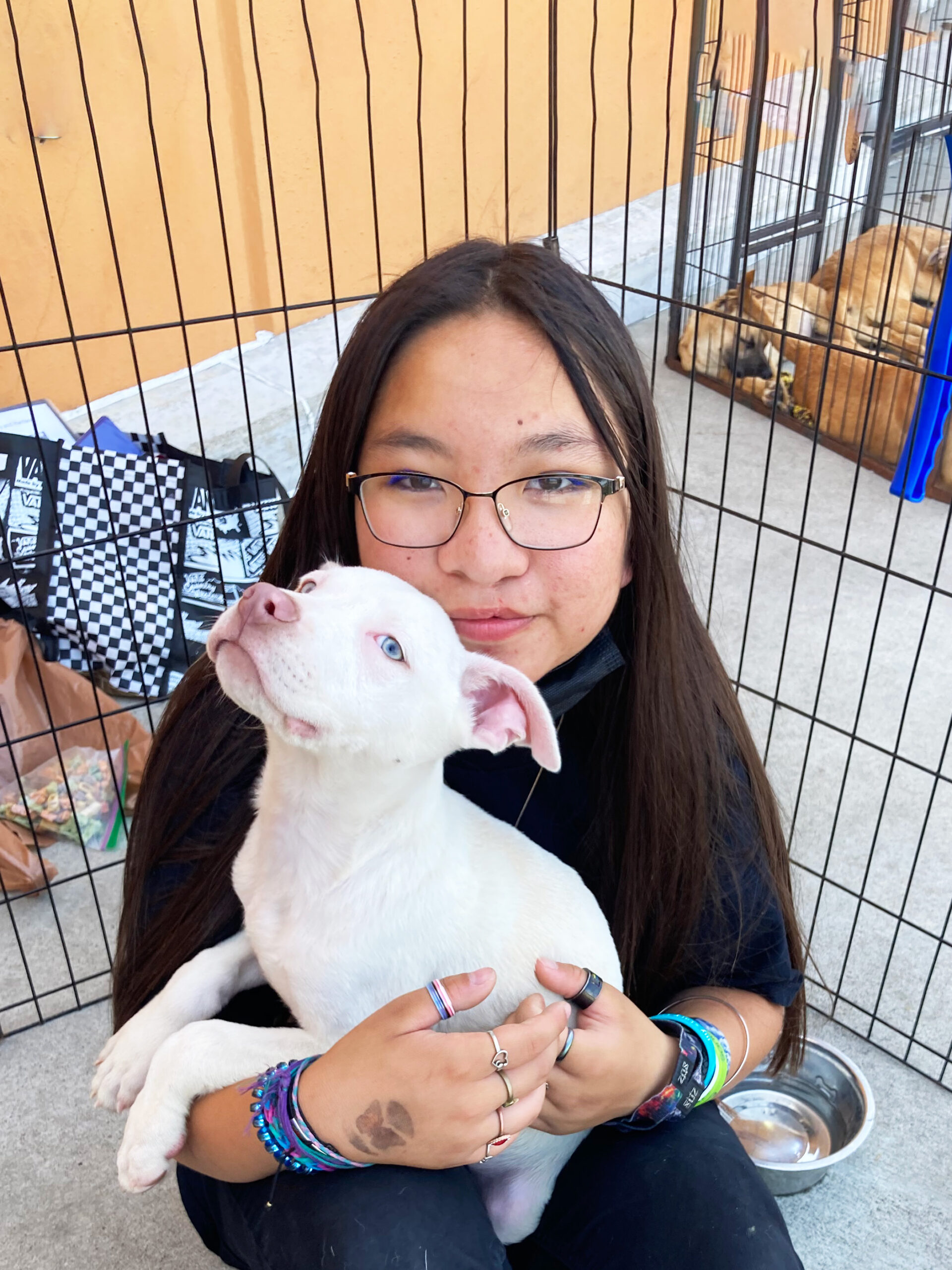MENTAL HEALTH GUIDE
Suicide Prevention
Suicide is one of the leading causes of death in children and adolescents. People may think about ending their lives when they feel depressed or hopeless, but there can also be many other triggers for suicidal thoughts, such as abuse, bullying or experiencing loss. Youth suicide is a serious concern starting much younger than parents may think. Being proactive about prevention can make a big difference.
Crisis Resources
If your child expresses thoughts of wanting to harm themselves or others,
call 9-1-1 or visit the nearest emergency department.
To reach the Crisis Text Line, text HOME to 741-741 or visit crisistextline.org.
To reach the National Suicide Prevention Lifeline, call 9-8-8 or visit 988lifeline.org.
External resources
Mental Health.gov
www.mentalhealth.gov
National Association of School Psychologists (NASP)
www.nasponline.org
Learn more about CHOC’s pediatric mental health services
At CHOC, we specialize in providing a full spectrum of pediatric mental healthcare, including inpatient, intensive outpatient and outpatient program services.
Get 24/7 advice from CHOC
Suicide Overview: Warning Signs & Risk Factors
Someone might consider or attempt ending their own life if they feel hopeless, depressed or like they do not matter. Below are some risk factors, as well as possible warning signs of suicidal behaviors to look for.
What are the warning signs someone is thinking about suicide?
Talking about death or about being gone. These can include talking about wanting to die or kill themselves; feeling hopeless; having no reason to live; feeling like a burden to others; expressing a lot of shame or guilt; making statements that others don’t care about them; or saying that others would “be better off without me.”
Suicide notes. If someone writes a suicide note — or a note that makes it sound like they are saying goodbye or planning to hurt themselves — it is a very real sign of danger and should always be taken seriously. These may be in the form of letters, emails, social media posts or text messages.
Previous attempts. If someone has attempted suicide in the past, they are more likely to try again.
Final arrangements. This behavior may take many forms. In teens, it might be saying goodbye to friends; giving away prized possessions; or deleting profiles, pictures or posts on social media.
Dramatic changes. Changes can include withdrawing from friends and family; skipping school or classes; becoming less involved in activities that were once important; avoiding others; inability to sleep or sleeping all the time; sudden weight gain or loss; or showing less interest in appearance or hygiene.
Plan/method/access. A suicidal child or adolescent might show an increased interest in guns or other weapons, might seem to have increased access to guns or pills and/or may talk about or hint at a suicide plan.
What are suicidal behaviors to look out for?
Risky behaviors. Increasing the use of alcohol or drugs, showing rage, talking about seeking revenge or showing an increased interest in weapons can be warning signs.
Hurting oneself. Self-injurious behaviors (e.g. cutting or burning) are warning signs for young children as well as teenagers.
What factors can place youth at risk for suicidal ideation and/or a possible suicide attempt?
Certain risk factors can increase the risk of someone developing suicidal thoughts. These may include but are not limited to:
- Identifying as LGBTQIA+
- Struggling with depression and/or anxiety
- Being bullied, either in person or online
- Experiencing racism
- A history of substance abuse
- A history of sexual or physical abuse
- Having low self-esteem
- Academic struggles
- Perfectionism, or feeling pressured to be perfect
- A lack of social and family support
- A family history of suicide
- Experiencing trauma
- The loss of a loved one
 Print this section
Print this section
Talking About Suicide Can Prevent Suicide
We know talking about suicide with your child sounds scary. This blog by CHOC experts offers tips to help you start this important conversation.

7 suicide prevention tips for parents and caregivers
No parent wants to imagine that their child would think about ending their life or hurting themselves in any way, but the reality is that kids and teens are not immune to severe symptoms of depression. Here’s what parents can do to help prevent these tragedies.
1. Know the warning signs. Read over the list above and keep it in a safe place.
2. Have regular mental health check-ins with your child starting at a young age. The earlier and more regularly you do, the more you help your child feel comfortable with the subject.
3. Ask your child if they are having thoughts about killing themselves. It is a myth that talking about suicide will “plant” the idea or make them more likely to attempt suicide. In fact, the opposite is true. Talk about suicide prevention openly with your child on a regular basis.
4. Listen without judging and let them know you care about them.
5. Help your child stay engaged in their usual coping activities. For example, encourage family time and sports.
6. Stay with them if they’re in crisis or ensure the child is in a private, secure place with another caring adult until you can get further help.
7. Remove any objects that could be used in a suicide attempt. This includes guns, medications, sharp knives, ropes or cords, or cleaning products. As of 2020, guns are the number one cause of death among US youth. If you cannot remove a gun from the home, store it safely at all times.
If the danger of self-harm or suicide seems immediate, call 9-1-1 or 9-8-8, or take your child to the closest emergency department.
 Print this section
Print this section
Suicide prevention tips for kids and teens
Many people who have attempted suicide and survived say that they attempted it because they felt there was no other solution to a problem they were having, no other way to end their pain or that others would be better off without them. Remember that no matter how hopeless you feel right now, these emotions will pass. It can get better.
Get help right away.
If your bad feelings or pain become so overwhelming that you can’t see any solution besides harming or killing yourself or others, you need to get help right away. Tell a trusted adult. If talking to a stranger seems easier for you, call 9-8-8 or text “HOME” to 741741.
Having thoughts of hurting yourself or others does not make you a bad person.
Depression can make you think and feel things that are unlike you. It does not mean you are a bad person; it just shows how badly you are hurting. Getting help can decrease these unwelcome thoughts.
If your feelings are overwhelming, tell yourself to wait 24 hours.
This can give you time to really think things through and to see if those strong feelings get a tiny bit easier to handle. During this 24-hour period, try to talk to someone — anyone — as long as they are not someone else feeling suicidal or depressed. Tell a parent, relative, family friend or teacher. Or, if talking to a stranger feels easier to handle, call a hotline or text a text line, such as 9-8-8. Remember: there are likely several solutions to whatever problem you are having, even if you can’t see them right now.
If you’re afraid you can’t stop yourself, make sure you are never alone.
Even if you feel like you can’t talk about your feelings, stay in public places, hang out with friends or family members or go to a movie — do anything you can to keep from being by yourself and in danger.
 Print this section
Print this section
How to help a suicidal friend
As a friend, you may be in the best position to see when a friend might need help and help them get it. You may see signs yourself, hear about them secondhand or see something concerning on social media. Never ignore these signs. By remembering these two steps, you could help save a life.
1. Talk to your friends
Don’t be afraid to talk to your friend about your concerns. Listen to their feelings and make sure they know how important they are to you. It is important to remember, though, that you cannot keep them from hurting themselves on your own. Suicide is preventable but always requires help from adults. It is never your responsibility alone.
2. Don’t keep this secret
Never keep secret a friend’s suicidal plans or thoughts. You cannot promise that you will not tell someone; helping your friend requires an adult’s help. Talk to your parent, your friend’s parent, your school’s psychologist or counselor — any trusted adult. Don’t wait. Don’t be afraid that adults will not believe you or take you seriously. If you feel like they don’t believe you, keep talking until they listen. Even if you are not sure your friend is suicidal, talk to someone. It is always important to play it safe.
If danger of self-harm or suicide seems immediate, call 9-1-1 or 9-8-8.
 Print this section
Print this section
Learn more about CHOC’s Pediatric Mental Health Services
CHOC Hospital was named one of the nation’s best children’s hospitals by U.S. News & World Report in its 2024-25 Best Children’s Hospitals rankings and ranked in the behavioral health specialty.
Suicide prevention recommended reading
 Print this section
Print this section
Related guides
Suicidal thoughts and behaviors can also be prompted by mental health conditions, such as anxiety and depression, or social issues such as bullying or trauma. For more information on other mental health conditions that can sometimes contribute to suicidal thoughts and behaviors, please visit our other mental health guides.
Suicide prevention books
- Parenting a Teen Who Has Intense Emotions, Pat Harvey, and Britt H. Rathbone (2015)
- DBT for Parents – Dialectical Behavioral Therapy Skills Workbook, by M.J. Raymos (2021)
- Living with a Black Dog: His Name is Depression, by Matthew Johnstone (2006)
Additional Resources
Featured Resources
The guidance on this page has been clinically reviewed by CHOC pediatric experts.
For more health and wellness resources from the pediatric experts at CHOC:
Sign up for the Kids Health newsletter.
The contents of this webpage, including text, graphics, audio files, and videos (“Materials”), are for your general information only. The Materials are not intended to substitute qualified professional or medical advice, diagnoses, or treatments. CHOC does not recommend or endorse any specific tests, physicians, products, procedures, or other information that may be mentioned on or linked to this webpage. Always call your physician or another qualified health provider if you have any questions or problems. If you think you may have a medical emergency, call your doctor, go to the nearest emergency department, or call 911.
For more health information for your family visit health.choc.org









